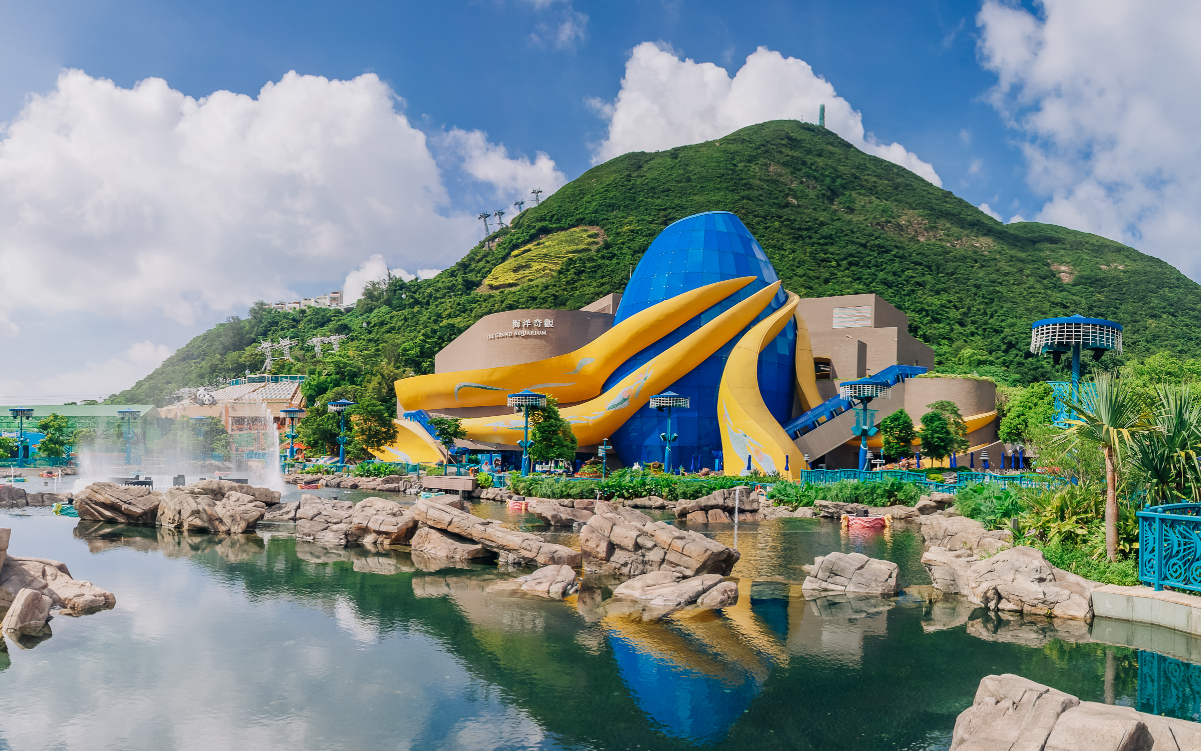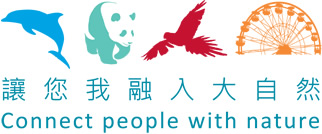(31 March 2012) Ocean Park has participated in the annual Earth Hour campaign organized by WWF for the fourth consecutive year, to help promote a low-carbon lifestyle. Between 8:30-9:30 p.m. tonight, Ocean Park will switch off all non-essential lights in most guest areas and attractions, including the Rainforest, Amazing Asian Animals, the blue egg-shaped exterior of Grand Aquarium, Neptune’s Restaurant, Ocean Square and the recently opened Old Hong Kong attraction area, as well as all offices and back-of-house facilities.
With the opening of the 40,000-square feet attraction area Old Hong Kong on March 15, guests to Ocean Park can experience and relive the unique streetscape and spirit of Hong Kong in the 1950s to the 1970s. In addition, a poster is being displayed at the entrance of Old Hong Kong to convey the importance of conserving water, which also reflects the problem of water shortage in Hong Kong in the old days. To save energy, Ocean Park has also adopted LED light bulbs in place of traditional light bulbs within Old Hong Kong.
Although the face of Hong Kong nowadays has dramatically changed compared with what it used it be half a century ago, guests can still recall precious memories at Old Hong Kong and take a leaf from some lifestyle habits in the past for a greener lifestyle. Let’s take a look at the classic green tips below presented by Ocean Park mascot Whiskers!
Clothing In the past, a lot of people would only buy new clothes during festive seasons. However, if we purchase well-tailored clothes made of durable materials, we can help reduce the amount of carbon emission generated by producing new clothes. Whiskers’ classic sailor outfit is a great example!
Eating Hardworking factory girls in the old days used to bring their own multi-compartment rice containers to work. Although these can no longer be found today, Whiskers still suggests us to bring our own healthy lunch box to work – this would help reduce carbon emission caused by eating outside!
Living In the past, most domestic electrical appliances were relatively simple in terms of functionality, and air-conditioners weren’t common yet. Nowadays technology has brought us a world of convenience, but we should always remember to switch off appliances after use for safety and a more environmentally-friendly lifestyle!
Traveling Rickshaws used to be the most popular mode of transportation in Hong Kong. Although a lot of options are now available to us today, walking is still the healthiest and greenest way to go around, if you are not going too far. See how fit Whiskers is as he travels to all corners of Ocean Park every day!










